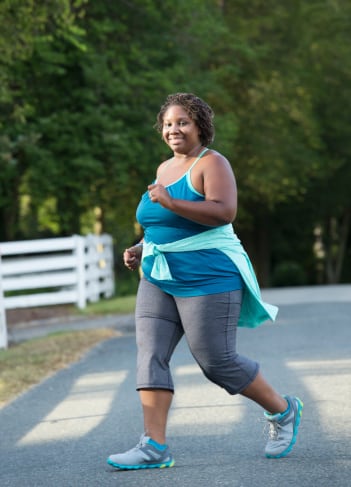
Black women are less likely to become pregnant through in vitro fertilization than other groups of women, but research suggests that you can increase you odds. (Photo: Blend Images/DreamPictures/Getty Images)
A new study analyzing more than 4,000 cycles of in vitro fertilization (IVF) found that black women are less likely to become pregnant from the procedure than women of other races; Asian women are also less likely to give birth after undergoing IVF.
Eve Feinberg, M.D., an assistant clinical professor at the University of Chicago Medical Center and a physician at Fertility Centers of Illinois, presented the new research at the 2014 annual meeting of the American Society for Reproductive Medicine (ASRM).
The researchers followed a group of women for two years to assess the number of pregnancies. Only 17 percent of the black women in the study became pregnant. The rate for white study participants was 31 percent.
“We were just struck by these outcomes,” Feinberg said during her presentation. “They had been reported previously in other studies, but our study, which is quite large, really confirmed those other findings.”
Feinberg is referring to a 2013 British study showing that African and Caribbean women, as well as Middle Eastern women and Southeast Asian women were less likely to become pregnant
Marriage Stress May Make You Fat
If you are in a difficult marriage, chances are you will also experience some depression. A new study now reports than women (and men) with a history of depression who have heated arguments with their spouses actually burn about 118 fewer calories after a high-fat meal. So if you and hubby are having a tough time, get out or get counseling. Your health may depend on it.
than white women. The post-IVF pregnancy rate between the African and Caribbean women in that study was 23.3 percent, compared to 47.9 percent among white European women.
A 2014 report from Columbia University also found that black women had lower rates of implantation when using donor eggs — 30.4 percent compared to 36.3 percent.
No Explanation
While the researchers for both the 2013 and 2014 studies say they controlled for fibroids and cesarean births, two conditions more common in black women, they could not find any clear explanation for the dramatic difference in success rates. They also adjusted their data to account for higher body mass index (a factor that reduces IVF success) and smoking.
The potential impact of discrimination was not considered in any of the studies, though other research has shown that women who are exposed to racism are more likely to have low-birth weight babies and poorer pregnancy outcomes. Given the long history of racial discrimination against black women in America and Caribbean and African women in England, there may well be a connection.
Increasing Your Chances of Succeeding at IVF
For women preparing to undergo fertility treatments, a few factors may increase your chances of becoming pregnant. Here’s what the latest research suggests:
Get healthy. Prepare for IVF by doing everything you can to improve your health. Get a full check up and make sure chronic health conditions, such as diabetes or hypertension, are under control.
Kick the habit. Women who smoke have a harder time conceiving than women who are smoke-free, and smoke can decrease sperm quality. Second-hand smoke can also reduce fertility. If you and your partner or spouse are trying to have a baby, get rid of the cigarettes.
Manage your weight. Many studies show lower rates of conception after IVF and higher rates of miscarriage in obese women. Shoot for a body mass index between 19 and 24 to get into the best shape.
Focus on protein. Trimming carbohydrates from your diet and increasing the amount of protein you eat may significantly increase your chances of conceiving after IVF. A 2013 study found that women who ate a diet that was comprised of 25 percent protein or more and 40 percent carbohydrates or less were 80 percent more likely to conceive after IVF than women who got more than 60 percent or more of their calories from carbohydrates.
Go easy on the exercise. Research shows that mild to moderate exercise can increase IVF success, but strenuous exercise reduces IVF-pregnancy rates for all women.
IVF is a high-risk, low success, option for all women, but if you decide to give it a try, create a supportive network around you to reduce stress and help buffer the unforeseen risks that black women may face.








